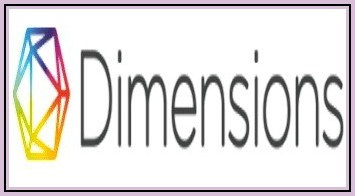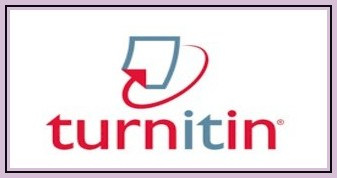Publication Ethics
In order to maintain the manuscript quality and avoid publishing violations, the editorial board of Juminten determines the ethics of journal scientific publications. The publication ethics are based on the regulation of the scientific institution head number 5 in 2014 concerning the Ethics code for Scientific Publications which contains provisions for the Scientific publications ethics.
The following Publication Ethics Document describes the ethics of all parties involved in the manuscript publication process and applied to writers/authors, editors, reviewers/reviewers, and journal managers/editors.
All parties involved must respect the ethical values in publications:
- Neutrality, which is free from conflict of interest in the management of publications;
- Justice, which is giving authorship rights to those who are entitled as authors; and
- Honesty, which is free from duplication, fabrication, falsification, and plagiarism in publications.
Journal Publisher of "JUMINTEN"
- Journal publishers are required to prepare personnel and other journal equipment, including the availability of funding sources for journal publishing sustainability, licensing and other legal aspects, as well as building a network of cooperation and marketing.
- Journal publishers are required to make journal management guidelines, conduct policy reviews and give them to the authors, the editorial board, peer reviewers, and readers.
- Journal Publishers are responsible for publishing manuscripts which after going through the process of editing, reviewing, and layout in accordance with publishing Scientific Journals rules and publishing journals regularly.
- Journal Publishers are responsible for ensuring academic freedom for editors and the reviews party (Mitrabestari) to create a comfortable working atmosphere in carrying out their duties.
- Journal Publishers must guarantee and protect intellectual property rights (copyright).
- Journal Publishers must publish and promote the results of publications to the public by guaranteeing the benefits of using the manuscript.
- Journal Publishers appreciate things that are confidential, both for contributing researchers, authors, editors, and review partners.
- Journal Publishers apply norms and provisions regarding intellectual property rights, especially copyrights
Editor's Ethics code
The editor ensures the process of reviewing the manuscript thoroughly, transparently, objectively, fair, and wisely to make a decision on whether a manuscript is rejected or accepted.
- The editor is responsible for deciding which manuscripts are worthy of publication through the editorial board meeting which refers to the applicable legal requirements regarding defamation, copyright infringement, duplication, data fabrication, data falsification and plagiarism.
- In the process of reviewing and accepting manuscripts, the editorial team is based on the principle of equality of treatment in making decisions to publish manuscripts without distinction of race, gender, religion, ethnicity, nationality, or political ideology of the author.
- The editorial team will not disclose any information about the submitted manuscript or manuscript except with the permission of the author.
- The editor will not published manuscripts for their own benefit and will be returned directly to the author.
- The editor will endeavor to meet the needs of readers and writers
- The editor encourage authors to make improvements to their manuscript so that it is worthy of publication and strive to improve the quality of publications sustainably
- The editor implements processes to ensure the quality of published papers,
- The editor prioritizes freedom of opinion objectively,
- The editor gives corrections, clarifications, withdrawals, and apologies if necessary,
- The editor is responsible for the style and format of the written work, while the content and all statements in the written work are the responsibility of the authors.
- The editor has an open mind to new opinions or views of others that may conflict with personal opinions and prevent to defend our own opinion, the author or a third party that can result an un-objective decision,
The Reviews Party (Mitrabestari) Ethics code
Mitra Bestari conducts studies in an honest, objective, unbiased, independent, holds basic principles and scientific analysis, and truth.
- Mitra Bestari assists editors in determining worthy papers to be published and assists authors in improving the quality of manuscript.
- Mitra Bestari who reviews the content of manuscript is required to be critical according to his expertise, be open to new things and adhere to the principle of confidentiality.
- Mitra Bestari has a passion for improving the manuscript.
- Mitra Bestari carries out the task of reviewing the manuscript from the Juminten’s editor and submitting the results of the study as consideration for determining the feasibility of publishing the manuscript, in accordance with:
- Scientific Rules
- Deadlines
- Juminten's Template
- Mitra Bestari reviews the manuscript that has been revised accordance with predetermined standards.
- Mitra Bestari encourages authors to make improvements by providing criticism, suggestions, input and recommendations
- Mitra Bestari maintains the author privacy by not disseminating the results of the study
- Mitra Bestari is not allowed to review a manuscript that involve themselves as an authors either directly or indirectly
- Mitra Bestari is guarantee the principle of truth, novelty and authenticity
- Mitra Bestari is prioritizing the benefits of writing for the development of science, technology and innovation
- Mitra Bestari understands the impact of writing on the development of science
- Mitra Bestari is free from interventions based on religion, politics, nationality, gender, commercial and other relationships that result in non-objective recommendations
- Mitra Bestari is Guarantee the confidentiality of the findings in the manuscript
- Mitra Bestari does not personally criticize the author
- Mitra Bestari will not communicate with the author/sponsor of the research
- Mitra Bestari does not use manuscript for personal or third party interests
- Mitra Bestari does not disseminate the manuscript that is being reviewed
Authors Ethics code
- The author must present the manuscript of his thoughts or research clearly, honestly, and without duplication, data fabrication, data falsification and plagiarism.
- The author must provide information about the process and results of his research to the editor honestly, clearly, and thoroughly, and keep his research data in a good and safe manner.
- The author must ensure that the manuscript has been submitted to the editor is the original manuscript, written by himself, originating from his own ideas, and not plagiarizing others manuscript and idea.
- The author must inform that the manuscript submitted to the editor is never been submitted to another journal/ publication publisher.
- The author must immediately inform the editor if errors are found in the manuscript, both the results of the review and the revised. The writing errors include writing names, affiliations/agencies, quotes, and other writings that can reduce the meaning and substance of the manuscript. If that happens, the author must immediately propose improvements to the manuscript.
- The author must understand the scientific publications ethics above to avoid conflicts of interest with other parties, so that the manuscript can be processed smoothly and safely.
- The author is responsible for the confirmation submitted on the manuscript that has been written.
- The authors must show references to other people's opinions and works cited
- The author must write the manuscript ethically, honestly and responsibly, in accordance with the applicable scientific writing regulations.
- The author does not mind if the manuscript is edited in the review process and layout without changing the substance or main idea of the article.








